Cargando...
Recursos educativos
-
Nivel educativo
-
Competencias
-
Tipología
-
Idioma
-
Tipo de medio
-
Tipo de actividad
-
Destinatarios
-
Tipo de audiencia
-
Creador
Lo más buscado
- música niños
- Siglos XV-XVII
- Dante Alighieri
- Actividades cientificas para niños sexto
- Árbol filogenético
- Estrategias en el juego
- Guía de fonética
- Estados de Estados Unidos
- Experimentos de ciencias para primero
- Actividades de geometría cuarto
- Aprender a bailar
- Actividades de lógica primero
- Huerto escolar
- actividades preescolar
- Alimentación saludable en segundo nivel
-
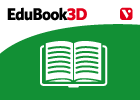
Els ibers a la Comunitat Valenciana
EduBook Organización
- 3246 visitas
2.1. Els pobles preromans a la península Les relacions dels pobles colonitzadors i els pobles indoeuropeus amb les comunitats indígenes van donar lloc a l'aparició a la Península de dues grans…
-
True/false. The Roman province of Hispania
EduBook Organización
- 3203 visitas
Answer true or false: The Celts and Iberians adopted Roman laws. ➝ The Romans conquered the Iberian Peninsula very quickly. ➝ The Roman army lived in cities. ➝ The Carthaginians were the…
-
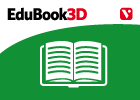
Introduction - The Middle Ages
EduBook Organización
- 3200 visitas
The Middle Ages began when the Roman Empire fell in 476. In 711, Muslim armies from North Africa conquered almost all of the Iberian Peninsula. They created a new state called Al-Andalus. In the north…
-
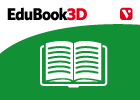
The exterior mountain ranges and river basins
EduBook Organización
- 3154 visitas
The exterior mountain ranges The exterior mountain ranges are separate from the Meseta. The Macizo Galaico is a low mountain range in the north-west of the Peninsula. The Montes Vascos are located in…
-
Clasifica. Celtas e iberos
EduBook Organización
- 3025 visitas
Indica si estas características pertenecen a celtas, iberos o a ambos pueblos: Conocían la metalúrgia del hierro. Acuñaron moneda. Habitaban en poblados fortificados. Vivían de la actividad…
-
Initial evaluation 02 - The Middle Ages
EduBook Organización
- 3015 visitas
Decide if the following statements are true or false: In the Middle Ages, most people knew how to read and write. ➝ The Muslims conquered the Peninsula and created Al-Andalus. ➝ The Muslims occupied…
-
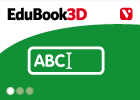
Final self-evaluation 1.02 - Islam and Al-Andalus
EduBook Organización
- 2954 visitas
Complete the text with the best words: Islam is a religion, which believes in a single god, . His prophet, , began to preach the new religion on the Peninsula. After his death, the Arabs spread Islam…
-
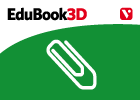
Les serralades exteriors
EduBook Organización
- 2853 visitas
Les muntanyes del Massís Galaic, les Muntanyes Basques, les Serralades Litorals Catalanes i les Serralades Bètiques limiten amb les terres costaneres peninsulars. Els Pirineus estableixen el límit…
-
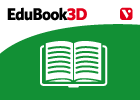
End-of-unit activities - The Middle Ages
EduBook Organización
- 2847 visitas
The Middle Ages began when the Roman Empire fell in 476. In 711, Muslim armies from North Africa conquered almost all of the Iberian Peninsula. They created a new state called Al-Andalus. In the north…
-
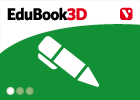
Observa. Os reinos peninsulares (ss. XV-XVI)
EduBook Organización
- 2764 visitas
Observa o mapa e responde as seguintes preguntas: Que reinos existían na Península a finais do século XV? En que anos conseguiron os Reis Católicos unir estes reinos baixo a súa Coroa? Que reino…
Te estamos redirigiendo a la ficha del libro...













